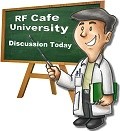|
 |
Tech Smorgasbord Archives - 16 |
|
Government Funds as Share of Gross Expenditures for R&D: 1990-2004 (source:
NSF)
|
 This chart from the National Science
Foundation profoundly illustrates a couple disturbing facts. This chart from the National Science
Foundation profoundly illustrates a couple disturbing facts.1) Overall trends in government-funded R&D is declining worldwide. 2)
Throughout the 1990s, the U.S. dropped off faster than the rest of the 1st world nations. Fortunately, some upward swing is apparent - particularly
in the U.S. since 2001. Too bad it took a terrorist attack to shock us back on track. |
|
7-24-2008
|
World's 1st Superconductor Transmission Lines Put into Service (source: IEEE Spectrum)
|
 With the help of American Superconductor and the
DOE, Long Island Power Authority commissioned the world's first high-temperature superconductor power transmission cable system to be used in
a commercial power grid. The three 138 kV cables can handle 150x the current of similarly sized copper wires. These 1st-generation cables are
costly, mainly because the wires are coated with silver. Testing has just begun on a second-generation cable coated with copper, which cost
about 1/5 as much. With the help of American Superconductor and the
DOE, Long Island Power Authority commissioned the world's first high-temperature superconductor power transmission cable system to be used in
a commercial power grid. The three 138 kV cables can handle 150x the current of similarly sized copper wires. These 1st-generation cables are
costly, mainly because the wires are coated with silver. Testing has just begun on a second-generation cable coated with copper, which cost
about 1/5 as much. |
|
7-17-2008
|
EDN 2007 Survey How Long Have You Been an Engineer? (source:
EDN)
|
The current RF Cafe Poll asks about the same topic EDN's poll (truly a coincidence). EDN results are based on 1,201 usable replies, at a 95%
confidence level, error margin of ±2.8%. EDN's survey was global, as is RF Cafe's. RFC's higher % of new engineers could be due to their accessing
the site's vast resources that newbies tend to be looking for - how-to articles, component vendors, tech headlines, forums, nerd entertainment,
etc.
|
Years |
EDN% |
RFC% |
|
<2 |
5 |
22 |
|
2-5 |
8 |
19 |
|
6-10 |
13 |
10 |
|
11-15 |
14 |
8 |
|
16-20 |
13 |
9 |
|
>20 |
48 |
33 |
|
|
7-10-2008
|
California to Ban Metallic Mylar Balloons (source: LA Times)
|
|
Never mind the dangers of your kid inhaling or swallowing a balloon, the real danger apparently lies in the potential for one of those evil
devices to escape from the grip of little Johnny's paw and floating into a power line. About 200 instances of balloon-caused outages occurred
in California in 2007. According to a PG&E spokesman, "They are a major public safety concern for us." The bureaucratic answer - Ban Them!
Brooklyn,
NY is experiencing the same phenomenon; surely other states are affected. Remember the
1984 Olympics? Maybe there should
be an emergency meeting of Congress to implement an nationwide ban on Mylar balloons. While they are at it, maybe they should also ban squirrels,
black bears, and kites. |
|
7-3-2008
|
Top 50 Websites in 2007 (source: Website
Magazine)
|
|
1 |
Google.com |
|
2 |
MSN.com |
|
3 |
Yahoo.com |
|
4 |
Live.com |
|
5 |
YouTube.com |
|
6 |
Microsoft.com |
|
7 |
AOL.com |
|
8 |
eBay.com |
|
9 |
MySpace.com |
|
10 |
Google.co.uk |
|
11 |
Passport.com |
|
12 |
Wikipedia.org |
|
18 |
Facebook.com |
|
19 |
Amazon.com |
|
30 |
Weather.com |
|
33 |
Craigslist.org |
|
38 |
CartoonNetwork.com |
|
40 |
Walmart.com |
|
49 |
CareerBuilder.com |
|
50 |
Apple.com |
|
?? |
RFCafe.com |
|
|
7-3-2008
|
EDN 2007 Annual Base Salary Change Survey (source: EDN)
|
|
Samples represent Canada & the U.S. 19% of respondents were management. The overall average was a 3.5% increase in pay.
|
Portion |
Salary Change |
|
2% |
>20% |
|
5% |
10-20% |
|
4% |
8-10% |
|
4% |
6-8% |
|
15% |
4-6% |
|
41% |
2-4% |
|
12% |
<2% |
|
14% |
0% |
|
2% |
Pay Cut |
|
|
6-19-2008
|
Can You Say, "Friis Equation?" |
|
Most RF engineers are familiar with the Friis equation, which predicts
the received power level. Harald T. Friis,
born in Naestved, Denmark, is its namesake.
Just as with "Fresnel" (Fresnel zone), many people do not know
the proper pronunciation of "Friis" - I did not. So, I asked a native Dane, Jørgen Jakob Friis, how he pronounces the name. He responded with
actual audio files of him speaking H.T. Friis' name and hometown.
 Friis Friis
 Harald T.
Friis Harald T.
Friis
 Naestved Naestved
Many thanks to Jørgen for his assistance!
|
|
6-12-2008
|
The Etymology of "Magnet"
(source: Wikipedia) |
|
 The word "magnet" comes from the Greek "magnítis líthos" (μαγνήτης λίθος), which means "Magnesian
stone," since its origin is from the Magnesia region of Greece. Magnetic magnetite
is an iron ore native to the area. Also derived from Magnesia are the names of elements magnesium and manganese.
Phillips' Milk of Magnesia (magnesium hydroxide) is a name
familiar to many (unfortunately) with roots in its namesake. The word "magnet" comes from the Greek "magnítis líthos" (μαγνήτης λίθος), which means "Magnesian
stone," since its origin is from the Magnesia region of Greece. Magnetic magnetite
is an iron ore native to the area. Also derived from Magnesia are the names of elements magnesium and manganese.
Phillips' Milk of Magnesia (magnesium hydroxide) is a name
familiar to many (unfortunately) with roots in its namesake.
|
|
6-7-2008
|
 |
|
|



 "
"


